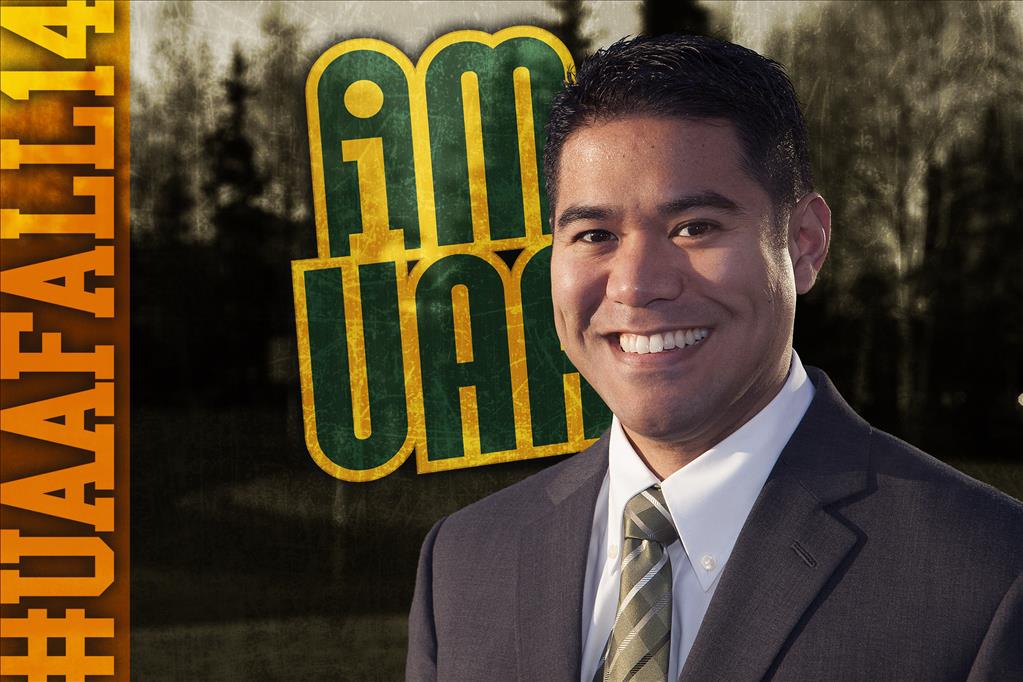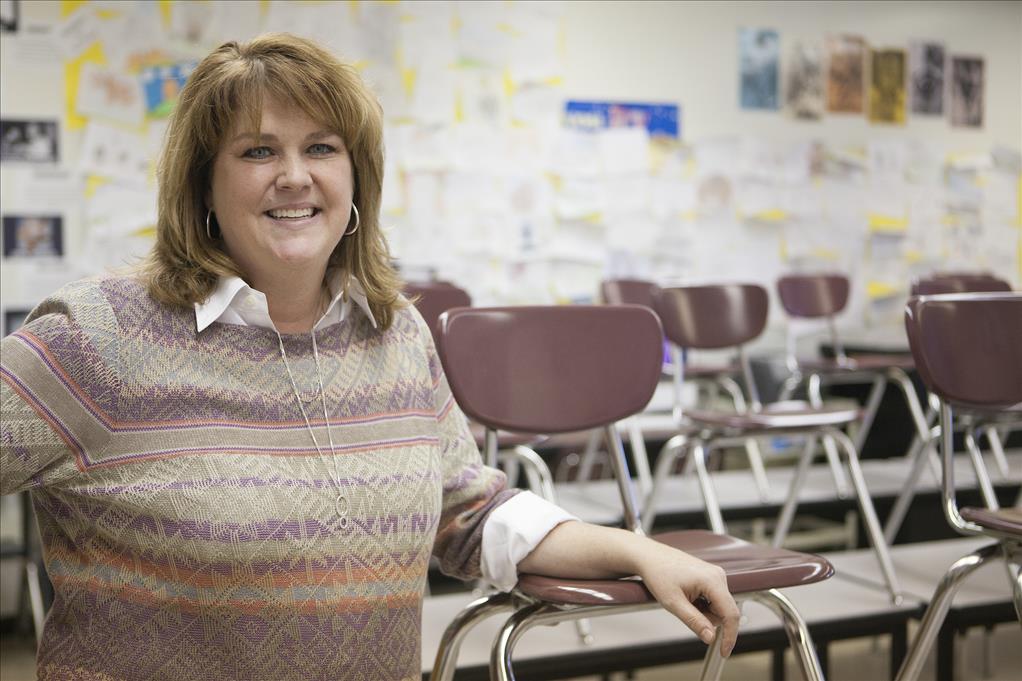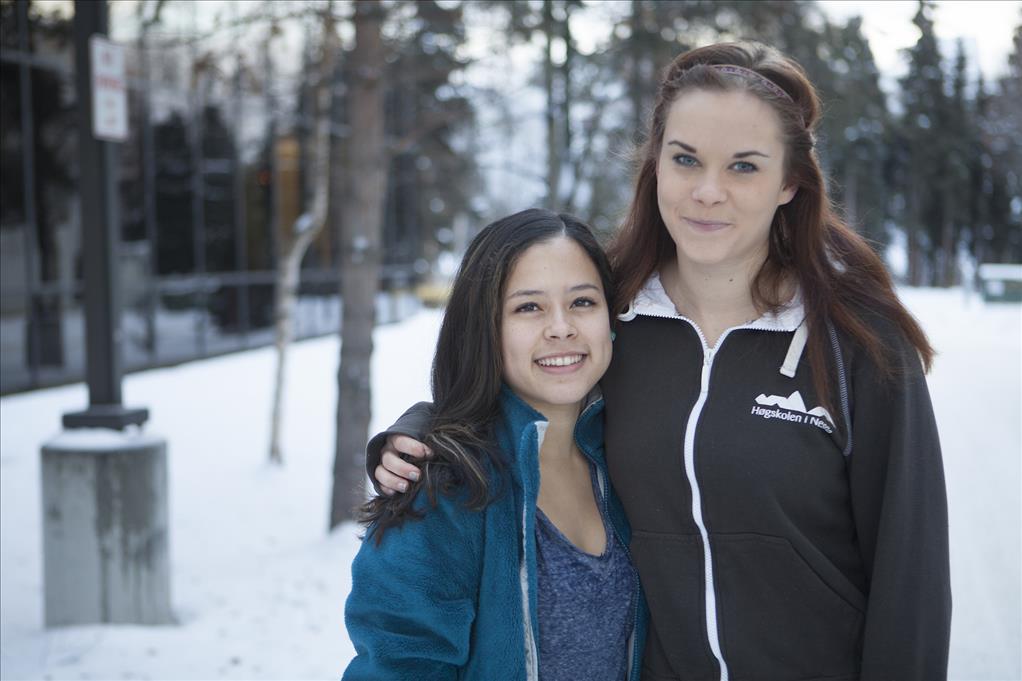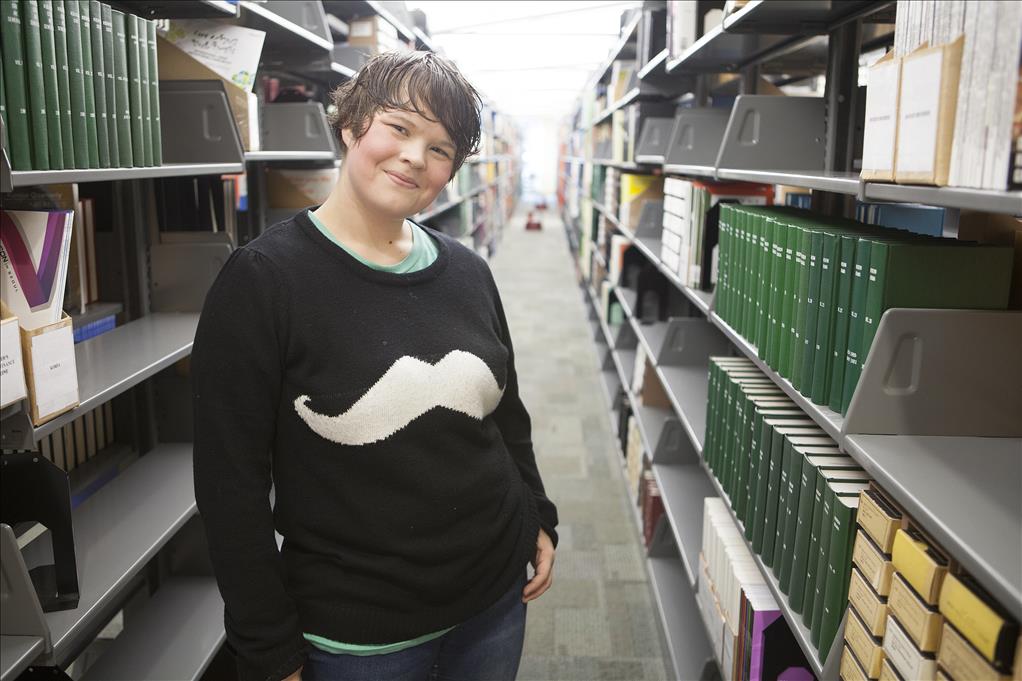How to accidentally become a linguist
by Jamie Gonzales |
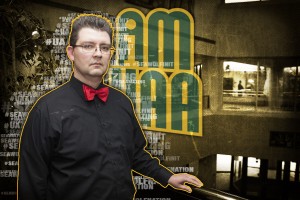
I AM UAA: David Bowie, assistant professor of English (Photo by Philip Hall/University of Alaska Anchorage)
Dr. David Bowie, assistant professor of English Home State: Maryland Fun Fact: Had his students trace Sarah Palin's speech patterns one semester. They discovered, yes, she's always talked like that.
First, because I know you're wondering: David Bowie's parents had never heard of the sparkly English glam rocker when they named their son and no, it was not the easiest name to have in middle school and high school in rural Maryland, regardless of how it's pronounced. (By the way, it's pronounced like "buoy.")
"I decided in high school I was going to change it," said David. But then he went to college and realized sharing a celebrity moniker wasn't the end of the world. It was even kind of cool. College wasn't exactly smooth sailing, though-he flunked out on his first attempt. But, he rallied and, with a leg up from his state's community college system and a pledge to actually go to class and work hard, he went on to earn his Ph.D. from an Ivy League school.
Becoming a linguist
After earning an associate degree in community college, David decided to try his luck at University of Maryland-College Park. He showed up to transfer student orientation day, ready to register, only to find out that, because he already had so many credits, he would be required to declare a major that day. Nothing like choosing under pressure.
He thumbed through the catalog and decided that the Linguistics Department looked small and might be able to give him some individual attention. So, voila, he became a linguistics major on the spot and, at the urging of his advisor, signed up for his first linguistics class.
"I registered and went and bought my textbooks. By then I had learned to read the first chapter of my textbooks before I took a class so I knew what I was in for," David said.
He cracked open Contemporary Linguistics and, one chapter in, he was hooked. There were people in the world who thought about language the way he did.
He spent the next three years studying theoretical linguistics and then, with encouragement from faculty members, applied to a graduate program in linguistics at University of Pennsylvania (Penn) that would have him venture into sociolinguistics, studying the way people actually talk or use language.
Moving to the blue frontier
After working as a professor in both Utah and Florida, David decided it was time for a change and cast a wide net in search of new opportunities. Alaska made the cut.
He arrived in Alaska in February for his on-site interview, watched an amazing blue-streaked sunrise from his hotel room-one of his favorite Alaska visuals to this day-and was startled by how chatty and friendly everyone was as he walked a frozen downtown in search of souvenirs for his family.
"I'm like, what is this place I've fallen into? There's over a quarter of a million people here, but this feels like a small town," he said.
He and his wife, Jeanne, along with their four kids, joined "small town" Anchorage in 2009. David has since learned to build time for chatting into his errands.
He's excited to be living and working in frontier-adjacent Anchorage, with access to the rest of Alaska where linguistics study to date has been minimal. Alaska Native languages have been studied intensively, but tracing English sound systems is new territory.
"Here, I could write my own script," he said. "I don't necessarily have to build something that has to be compared to an earlier study. I can decide at the outset, what do I think is important to investigate? If you're a researcher at heart, having the ability to play...I get the chance to go down blind alleys and be wrong and not know ahead of time. And that's fun!"
No wrong way to speak
One of the most rewarding parts of teaching linguistics, David said, has been helping students learn to think like a linguist.
"For language, good and bad or right and wrong have no meaning. You may have proper and improper for the situation, but not even proper grammar and improper grammar the way people think of it," he said. "There's no bad grammar any more than there's a bad shade of blue."
How you talk is part of who you are. When he explains this linguistics worldview in classes, he's sometimes surprised by the reactions from students who come from, say, rural mining towns or Alaska villages. "You can almost see a shudder go through them when they realize, 'You mean the way that I talk is okay?' It's not something to be ashamed of. It's identity."
Those days, he gets to celebrate. "I'm like, I actually accomplished something worthwhile for the history and vitality of the human species today!" he said, laughing. And that just might end up being his rock star legacy.
Written by Jamie Gonzales, UAA Office of University Advancement
 "How to accidentally become a linguist" is licensed under a Creative Commons Attribution-NonCommercial 4.0 International License.
"How to accidentally become a linguist" is licensed under a Creative Commons Attribution-NonCommercial 4.0 International License.










